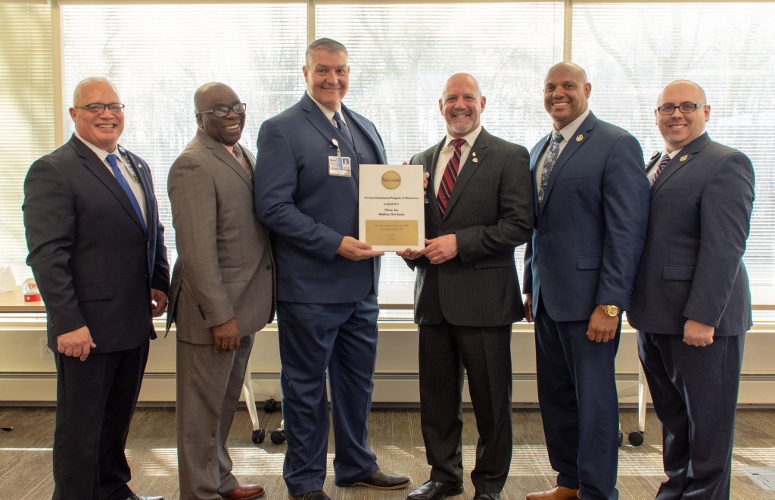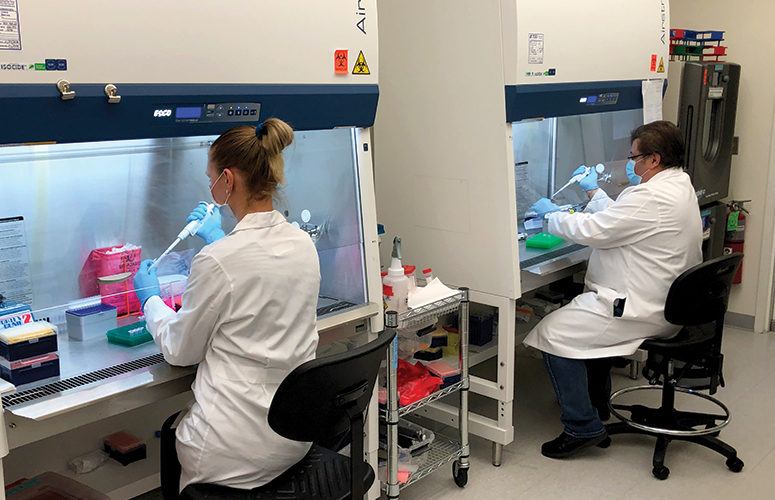
Christie Administration Announces More Than Half A Million New Jerseyans Have Comprehensive Health Care Thanks To Cost-Cutting Medicaid Expansion
On Aug 29, 2016Governor Christie today announced that more than half a million New Jerseyans have comprehensive health care coverage who otherwise would not have due to his decision to opt for Medicaid expansion. The NJ FamilyCare 2015 Annual Report, which details the condition of the state’s medical public assistance program, shows that since the January 2014 expansion, 566,655 more residents are now enrolled, thanks to the expansion that has reduced costs for taxpayers and beneficiaries.
- 336,141 Newly eligible adults
- 101,644 Previously eligible but not enrolled adults and children
- 128,870 Adults maintaining eligibility solely due to the state’s decision to expand Medicaid
NJ FamilyCare is the single program for all public medical assistance in New Jersey, which includes adults and children eligible for services under any state or federal authority. NJ FamilyCare enables access to and delivery of care to 1.7 million beneficiaries and covers a broad range of benefits with limited out-of-pocket costs.
Greater Healthcare Options & Improving Services
New Jersey’s Medicaid expansion delivers a wider variety of treatment options and is available to more people. The Christie administration has ensured all New Jerseyans are receiving the treatment and care they need.
- Substance Use Disorder Treatment: Medicaid expansion has made treatment available to more people in a population that has significant behavioral health needs. In an effort to improve access further, Governor Christie’s FY 2017 budget contains $127 million in additional funding for Substance Use Disorder and mental health treatment.
- Interim Management Entity: Created to connect Medicaid beneficiaries and the uninsured to treatment, the one-stop hotline had fielded 62,165 calls since July 1, 2015.
- Smoking Cessation Services: Medicaid beneficiaries smoke at rates higher than the general population and thus, are in particular need of these services.
- Women’s Health Services: These services include prevention care, pregnancy related care, family planning and screening for breast and cervical cancer.
- Lead Screening: All children under age 6 are screened and treated for lead exposure, as appropriate.
The annual report shows the strong quality of NJ FamilyCare and improving customer satisfaction.
- The overall rating of health care is at a six-year high, with 84 percent of adults satisfied with their own healthcare and 92 percent satisfied with the care their children are receiving.
- New Jersey’s Medicaid Managed Care Organizations compare very well to their counterparts nationally. The weighted average scores for New Jersey’s MCOs either exceeded or fell within three percentage points of the national averages for 69 percent of the available quality measures, up from 63 percent in 2014.
Fiscally Responsible
Suggestions that Medicaid expansion could further burden the state budget were incorrect, as it has provided a better deal for New Jersey’s taxpayers and Medicaid beneficiaries.
- By expanding Medicaid, New Jersey took advantage of enhanced federal matching rates and got New Jersey taxpayers a better value for their investment in the health of their fellow citizens. As a result, New Jersey was able to decrease the state’s share of overall expenditures to 39 percent in 2015, down from 45 percent in 2014.
- As the population expanded, costs did not simply increase in a straight line. Instead, the overall average cost per beneficiary decreased by 7.7 percent, from $9,690 in FY 2014 to $8,940 in FY 2015.
A Leader In Medicaid Reform
New Jersey had already won federal approval in October 2012 for its Comprehensive Medicaid Waiver when Governor Christie announced his decision to expand Medicaid in New Jersey. Since then, New Jersey has continued to implement reforms to improve the efficiency and quality of Medicaid, including:
- The Medicaid Accountable Care Organization Pilot Program: This program rewards Medicaid Accountable Care Organizations (ACOs) that deliver high-quality care at lower cost. Three Medicaid ACOs were certified during 2015, and Governor Christie’s FY 2017 budget includes $3 million ($1 million each) to help them integrate physical and behavioral health care.
- Governor’s historic investment of an additional $127 million to improve access to behavioral health treatment: A Rutgers Medicaid High-Utilizer analysis showed that of the top 1 percent of the state’s most expensive Medicaid patients, 86 percent of them have a mental illness, substance use disorder, or both. As a result, Governor Christie made the decision to increase funding to ensure adequate access for these treatments.
- The Delivery System Reform Incentive Payment (DSRIP): In partnership with the Department of Health, this program rewards hospitals for improving how they treat certain conditions including diabetes, cardiac care, behavioral health, chemical addiction/substance abuse, asthma, obesity and pneumonia.
- Medicaid Fraud Division: Putting a sustained emphasis on detecting and preventing fraud, New Jersey has recovered $87.3 million in improperly paid funds and avoided an estimated $771.9 million in improper payments through proactive anti-fraud efforts.
Dedicated To Making NJ FamilyCare Even Better
- New Jersey was the first state in the nation to use “MAGI in the Cloud” web service technology to fully automate eligibility determinations and under standard federal MAGI (modified adjusted gross income) eligibility rules. This reduced the time needed for final eligibility determinations.
- New Jersey’s non-emergency medical transportation broker arranged 5.5 million trips to medical appointments for NJ FamilyCare beneficiaries.
- New Jersey’s Health Benefits Coordinator fielded 1.5 million calls from consumers.
- The departments of Human Services and Corrections work collaboratively to sign up eligible inmates who are reentering society for NJ FamilyCare before they are released and to maintain their eligibility for Medicaid-eligible hospital stays during their period of incarceration. This saved taxpayers more than $15 million in 2015.
Related Articles:






